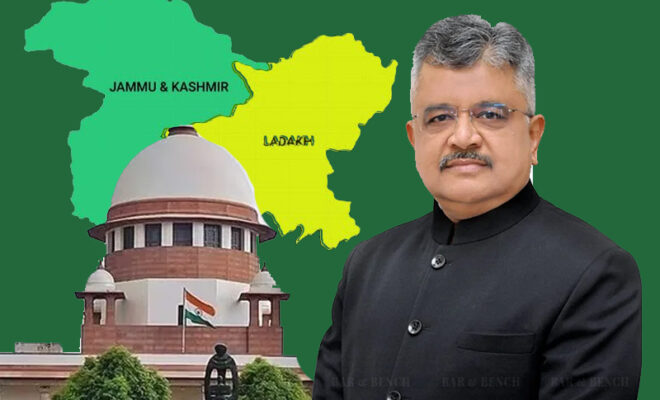J&K To Become A State Soon, Ladakh To Remain Union Territory

The Indian government has informed the Supreme Court that the union territory status of Jammu and Kashmir is not permanent and that it will provide a detailed statement on the issue on August 31.
The Solicitor General, Tushar Mehta, stated that the union territory status of Jammu and Kashmir will not last indefinitely, while the status of Ladakh will continue as a Union Territory for some time.
The government will present a comprehensive statement on the future of the union territory status of both regions to the court.
The Supreme Court, which was hearing petitions against the revocation of Article 370, asked the government to define a time frame for the restoration of electoral democracy in Jammu and Kashmir.
The court emphasized the importance of democracy and stated that the absence of electoral democracy cannot continue indefinitely.
The bench requested Mehta and Attorney General R Venkataramani to seek instructions from the political executive and provide a specific time frame for the return of actual democracy.
Earlier, Chief Justice of India D Y Chandrachud observed that Article 35A, which provided special rights to permanent residents of Jammu and Kashmir, took away fundamental rights such as equality and liberty.
The Solicitor General argued that the special provisions for Jammu and Kashmir were discriminatory and not a privilege. He also mentioned that two political parties were defending Article 370 and 35A in court.
The Solicitor General further explained that Article 370 allowed for the amendment, alteration, or even destruction of any part of the Indian Constitution with respect to Jammu and Kashmir.
He highlighted that certain important words and provisions, such as “Socialist,” “Secular,” “Integrity,” and fundamental duties, were not applicable to Jammu and Kashmir.
The Indian government made a big announcement on August 5, 2019. They said that they were revoking the special status of Jammu and Kashmir under Article 370 of the Indian Constitution.
They also said that they were bifurcating the state into two union territories: Jammu and Kashmir, and Ladakh.
This was a big change, and it came as a surprise to many people. The special status of Jammu and Kashmir gave the state a lot of autonomy, and it was seen as a way to protect the rights of the people of the region.
Also Read:- ‘Economic Geography Has Shifted Eastward’ – McKinsey
The creation of 2 separate union territories as ‘Jammu & Kashmir’ and ‘Ladakh’ were necessary to bring peace and development to the region.
They said that the special status had been abused by separatists and terrorists, and that it was time for the state to be brought under the direct control of the central government.
Since this event the state is consistently developing, terrorism is almost under control and the citizens are receiving the benefits of India’s government schemes.



